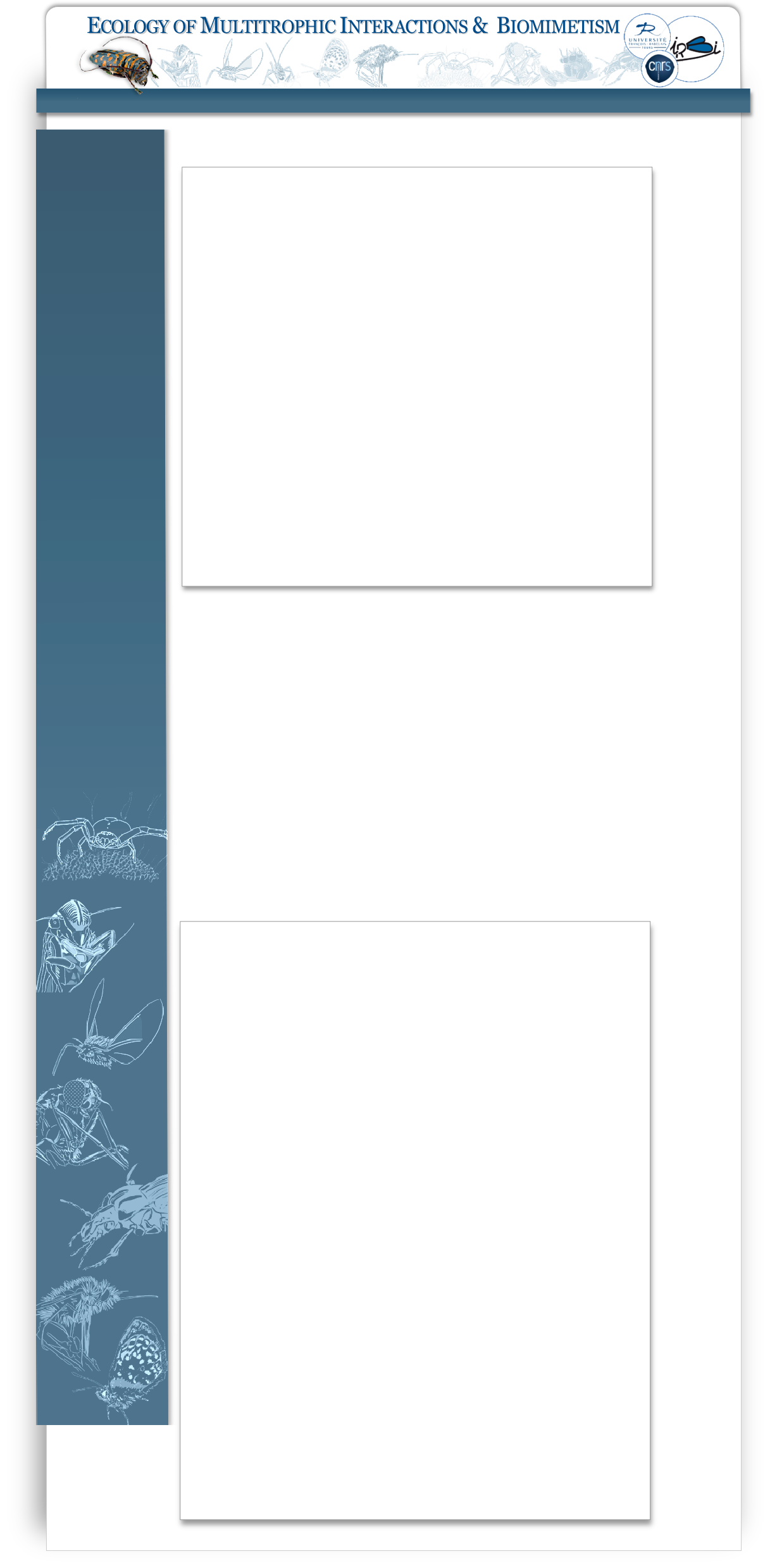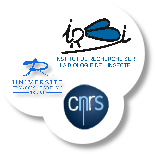
Welcome to our lab !
Our website will experience a complete renewal early 2017. So stay tune if you want to read more on our group, as well as specifically about the latest on insect ecomechanics and bioinspired technologies!
We are a group of scientists interested in how Nature works– from understanding the
role of the capillary wave propagation at the water surface in insect communication
to the biochemical reconfiguration of a leaf after being fed upon by a herbivore-
We work mainly at the organismal level, but we also deal with processes at the cellular
level and also on population and community ecology of consumer-
Our current activities can be broadly split into six different areas
(i) Nutrient acquisition and allocation in relation to the reproductive physiology of parasitic wasps.
(ii) Biochemical and hormonal interplay in intimate insect-
(iii) Reversible colour mimetism in spiders and its neuroethological and biochemical basis.
(iv) The cascading effect of an herbivore invasion on the population dynamics of its parasitoids and their other hosts.
(v) The solid and fluid mechanics of insect life.
While definitely grounded in basic research, the group is also involved in
(vi) Biomimetics, through the design of flow sensing MEMS (micro electronic mechanical sensors).
(vii) Agroecology, through the understanding and use of multitrophic interactions in agroforestry systems.
At the Institute of Research on Insect Biology we are organized in two interconnected research groups within the Ecology of Multitrophic Systems and Biomimetism research team led by prof. C. SUPPO.
The Quantitative Ecology group led by Prof. C. SUPPO addresses questions linked to:
-
-
-
-
The Functional Ecology group led by Dr. D. GIRON addresses questions linked to:
-
-
Additionally, 2 research themes at the interface between our 2 groups are developed in relation to:
-
-


Institut de Recherche sur la Biologie de l'Insecte
UMR 7261 Faculté des Sciences et Techniques
Avenue Monge, Parc Grandmont
37200 TOURS (France)






Keywords :
Integrative biology
Organismal biology
Functional ecology
Quantitative ecology
Population dynamics
Community dynamics
Climate change biology
Nature inspired technology
Agroecology-Agroforestry
Biological invasions
Arthropod biology
Multitrophic interactions
Ecomechanics
Chemical ecology
Environmental genomics

